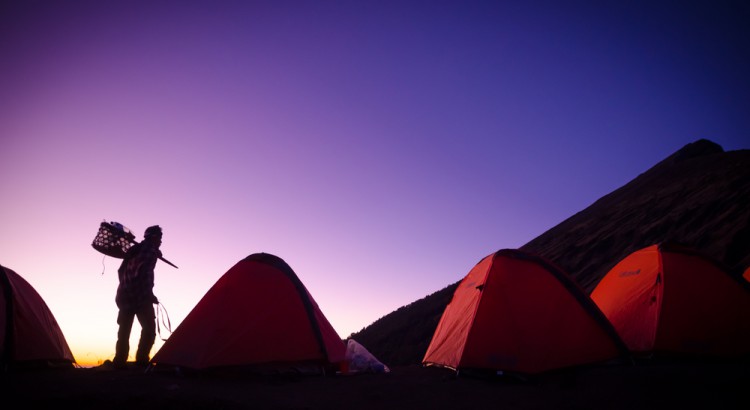Mount Rinjani: 5 Facts to know about Rinjani's porters
mis à jour le 5 August 2017 à 01:14Trekking on Mount Rinjani will not be possible without your trusty porters. Here's all you need to know about the hardworking men.

Anyone who decides to trek the skyscraping Mount Rinjani in Indonesia will need a porter or two to make their expedition successful. Mount Rinjani is Lombok’s 3,726 meter active volcano that last erupted in May 2010.
Known as Gunung Rinjani's strongmen, porters are local Indonesian men who are tasked with carrying food, water and camping supplies for trekkers.
Threadbare clothing
Most of the porters are dressed in little more than flip flops, shorts and T-Shirts throughout the day. While the tour guides have the luxury to invest in proper trekking attire, most porters don't. They are usually decked in threadbare shorts and slippers; some even walk barefoot throughout the journey.
Even at night when temperatures drop to 10 degrees and the winds are ostensibly strong, the porters can survive the night with one jacket.
Local Sasak men
Most of the porters are local Sasak men living in the nearby Sembalun and Senggini villages. The porters would have started working since their teens. Since there are not many jobs in Sembalun/ Senaru outside of the trekking industry, being a porter is considered a decent and well-paying job in Lombok. They earn USD250-300 on an average, excluding tips from trekkers.
Trained in cooking
Using the most rudimentary kitchen tools, the porters can whip up delicious meals instantly. Most porters are trained in cooking and know how to make a myriad of local and western dishes. They usually cook banana pancakes for breakfast and local Indonesian meals for lunch or dinner.
Strongman
Despite being heavy smokers, porters have great mental and physical strength. They have big calluses on their shoulders from years of carrying a heavy load. They fasten their load with baskets tied to a bamboo pole and balance it on one shoulder, swapping to the other when they start feeling the strain.
They generally do not stop until their bodies can no longer handle the pressure of daily hikes up and down Rinjani, with only a few days rest every month.
Second home
Porters and their families frequent Rinjani since young for a myriad of reasons; mostly for religious purposes. Some even proudly called Rinjani their ‘second home’. There is interaction and social solidarity among the porters and guides where they believe in helping one another.
Some guides were porters before they became guides, hence the guides are empathetic towards the porters.
Roshni Kapur
This post was written with the collaboration & support of the Ministry of Tourism Indonesia. Air Asia offers the best connectivity to Indonesia, check out their 15 destinations here!



